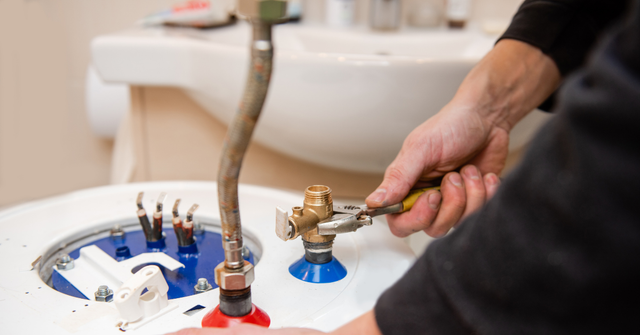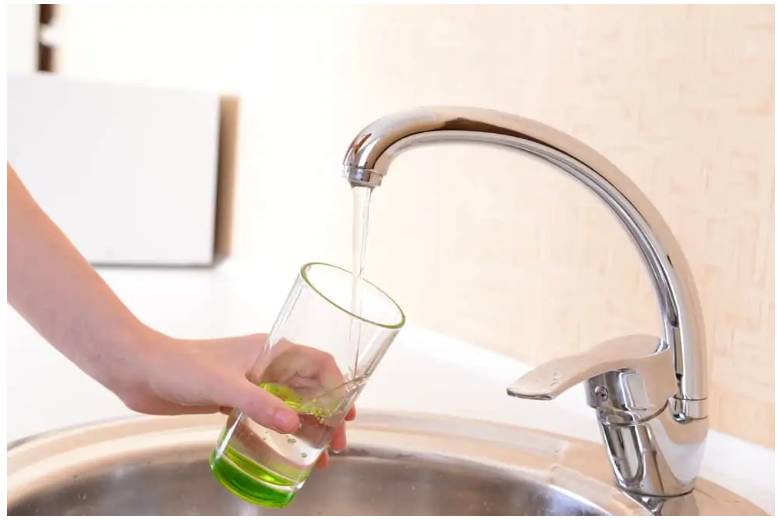Easy-to-Follow Ways for Addressing Low Water Pressure in Your Home
Easy-to-Follow Ways for Addressing Low Water Pressure in Your Home
Blog Article
We've uncovered the article involving Low Water Pressure in the House? below on the internet and believe it made good sense to talk about it with you on my blog.

Low water stress in your house can be an aggravating trouble, influencing every little thing from bathing to cleaning recipes. If you're experiencing weak water flow, there are several possible reasons and solutions to explore. In this overview, we'll go over usual factors for low water stress and useful steps to address the issue effectively.
Intro to Low Water Pressure
Low tide stress occurs when the flow of water from your taps, showers, and other components is weaker than normal. This can make day-to-day tasks a lot more challenging and less efficient. Comprehending the sources of low water pressure is important to discovering the ideal remedy.
Typical Root Causes Of Low Water Pressure
Faulty Pressure Regulatory Authorities
Pressure regulators are accountable for preserving regular water pressure in your home. If they malfunction, it can lead to low water pressure or unequal flow throughout the house.
Local Water Supply Issues
Often, the problem exists outside your home. Municipal water supply concerns, such as main line leaks or maintenance work, can temporarily lower water pressure in your area.
Pipe Obstructions
Over time, pipes can come to be clogged with mineral deposits, debris, or particles, limiting the flow of water. This is a typical concern in older homes with galvanized steel pipelines.
Corrosion
Rust within pipelines can cause leakages and reduced water pressure. Rust accumulation can constrict water circulation, particularly in aging plumbing systems.
Exactly How to Diagnose Low Water Pressure
Examining Pipes
Evaluate visible pipelines for signs of leakages, corrosion, or clogs. Pay attention to any type of unusual noises, such as banging or rattling pipes, which might indicate problems within the plumbing system.
Consulting with a Plumber
If you're unable to pinpoint the root cause of low water stress, consider hiring a specialist plumber to conduct a detailed evaluation. They can identify underlying concerns and recommend ideal services.
Checking Taps and Components
Begin by examining the water stress at different taps and components throughout your home. If the issue is separated to specific locations, it may show local problems.
Do It Yourself Solutions to Take Care Of Low Water Pressure
Flushing Water Heater
Debris accumulation in the water heater can restrict circulation and reduce efficiency. Purging the storage tank regularly assists eliminate sediment and maintain optimal performance.
Checking Stress Regulator
Make certain that the stress regulator is operating properly. Changing or changing the regulatory authority can aid bring back appropriate water stress throughout your home.
Cleaning Up Aerators and Showerheads
Mineral deposits can gather in aerators and showerheads, minimizing water circulation. Remove and clean up these components consistently to enhance water stress.
Clearing Clogs in Water Lines
For minor clogs, attempt making use of a plumbing serpent or chemical drainpipe cleaner to clear obstructions in pipes. Beware when utilizing chemicals and follow security standards.
When to Call a Specialist Plumber
If DIY efforts stop working to solve the concern or if you presume significant plumbing troubles, it's finest to seek aid from a licensed plumber. They have the proficiency and tools to resolve complicated concerns securely and effectively.
Safety Nets to Maintain Water Stress
Setting Up a Pressure Booster
Consider mounting a pressure booster pump to enhance water pressure in areas with constantly reduced circulation. This can be especially useful for multi-story homes or residential or commercial properties with high-demand components.
Tracking Water Use
Bear in mind water use habits and avoid ill-using the plumbing system. Basic changes, such as shocking showers and laundry loads, can help preserve adequate water pressure.
Regular Upkeep
Schedule regular maintenance for your plumbing system to avoid concerns such as deterioration, leaks, and obstructions. Attending to small problems early can help avoid more significant repair services in the future.
Final thought
Taking care of low water stress can be frustrating, but determining the underlying reasons and implementing suitable services can recover ideal flow throughout your home. Whether it's cleaning up aerators, inspecting pipelines, or talking to a plumber, taking proactive actions can make sure a consistent supply of water for your everyday needs.
FOUR WAYS TO FIX LOW WATER PRESSURE NOW
Turning on a shower or faucet only to find the water comes out in a sad, slow drizzle is never a good feeling. How exactly are you supposed to wash a pan or take a quick shower when it takes 10 minutes just to rinse off a little soap? The good news is that when your water pressure is bad, there's always a cause: typically one that can be easily fixed. Here are some of the most common causes of low pressure and what you can do to fix the issue:
DEBRIS AND MINERAL DEPOSIT BUILDUPS
If you notice low water pressure from just one or two of the fixtures in your house, the problem likely has to do with debris buildup. Water is full of minerals and other debris, all of which can accumulate in your pipes and on your fixtures. This can cause a blockage that affects how much water flows through. To fix this, try filling a small plastic bag with white vinegar, and use a rubber band to hang it around your showerhead or faucet. Let the head of the fixture soak for a few hours, and the vinegar should loosen the deposits.
WATER LEAKS
Leaks are another common cause of low water pressure. If water is flowing out of your plumbing through a hole or crack before it can reach your fixture, the pressure coming out of the faucet or showerhead will be lower. A plumbing professional is your best bet for finding and repairing a leak in your water supply pipes.
Leaks are another common cause of low water pressure. If water is flowing out of your plumbing through a hole or crack before it can reach your fixture, the pressure coming out of the faucet or showerhead will be lower. A plumbing professional is your best bet for finding and repairing a leak in your water supply pipes.
A VALVE ISSUE
If you have low water pressure throughout your home, check your main shut-off valve to make sure it's completely open. You may also want to see if there's a pressure-reducing valve installed. If there is, have a plumber help you adjust the settings to get the pressure you're looking for.
OTHERS USING WATER
Believe it or not, your low water pressure could be caused by your neighbors. If you notice low pressure at certain times of day, it may be because you and the people living next to you have similar schedules - when everyone is showering at the same time, the pressure will be lower in every home. Low pressure throughout the neighborhood may also be caused by an issue with your municipal water supply. If that's the case, call the supplier to see if they're working on the issue.
https://www.rotorooter.com/blog/water-leaking/low-water-pressure-fixes/

Do you appreciate more info about ? Write a remark further down. We will be glad to listen to your suggestions about this blog entry. We hope that you come back again in the near future. Liked our blog posting? Please share it. Let other people discover it. Thanks for taking the time to read it.
Start Now Report this page